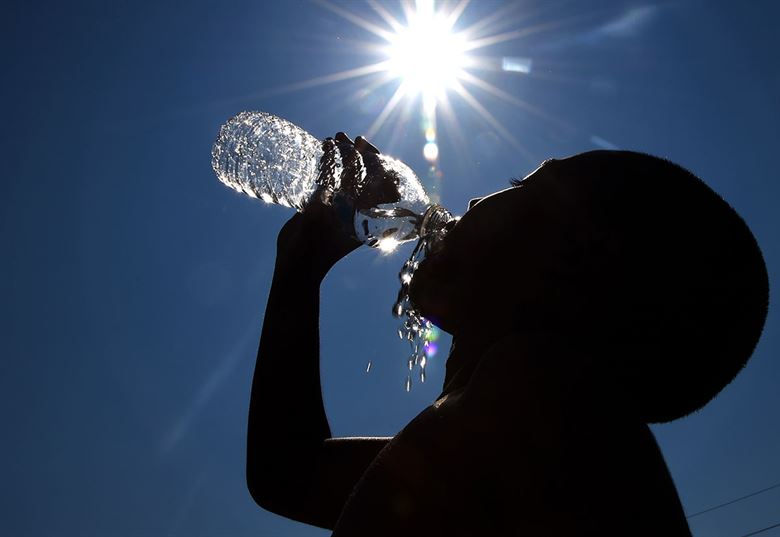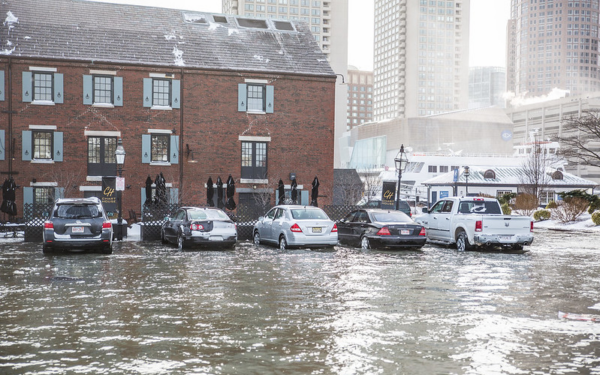
Heat waves are a deadly reminder of climate change. Photo Credit: U.S. Air Force photo/Staff Sgt. Sheila deVera.
UPDATE: Vermont is once again caught in the midst of a blinding heatwave. Our state has never been this hot for this long in June – and it’s not letting up. From Maine to the Arctic Circle and around the globe, regions that typically don’t experience this type of heat are breaking temperature records.
Like the past five years (including 2018 when this blog was first published), this year is already shaping up to be one of the hottest on record. Climate change is wreaking havoc on our planet, and putting our most vulnerable at risk. Particularly this summer, with COVID still ravaging our communities, the extreme heat could have even more of a deadly impact.
While the climate crisis is global, local action is where we can really push for change and have a tangible impact. Here in Vermont, legislators are considering a bill to slash the emissions that cause climate change and build a more resilient, climate-ready state. The bill, the Global Warming Solutions Act, would direct our state to lower emissions, ramp up clean energy, and invest in critical infrastructure throughout the state. Contact your Senators and urge them to pass this bill.
If someone had told me last spring that the August forecast for Vermont showed seven days above 90 degrees, I wouldn’t have believed them. Yet in Burlington last month my thermometer read, day after day: 91, 94, 99, 97, 95, 97, and 96. Since then, we’ve seen the temperatures soar past 90 degrees again and again throughout the state.
But it’s not just New England experiencing such weather extremes. Deadly wildfires are raging in California, heat waves are scorching Europe and other parts of the U.S., and scientists are predicting that 2018 will be the hottest on record (after the three previous years all earned the same dubious title themselves). This summer’s unprecedented weather across the globe is a stark reminder that climate change is here now, affecting us all day to day.
Here in New England, the blazing temperatures are not just an annoyance. Four people died in connection with the extreme heat around the Fourth of July holiday, according to the Vermont Department of Health. In neighboring Québec, the toll was even higher, with more than 50 deaths — including 28 in Montreal — attributed to the heat.
Even one death due to such extreme weather is too many– with more than 50 to date and more heat waves to come, it’s past time for New England’s leaders to take real action on climate. Our governors are meeting with eastern Canadian premiers this week in Vermont to discuss important regional issues, and climate change needs to be one of them.
Repeated sizzling days are a sign that climate change is here now.
Vermont summers have never been like this. Between 1999 and 2012, Vermont averaged seven hot days a year (when temperatures reached 87 degrees or higher). But a little more than halfway through 2018, we’ve already surpassed that number, including on three days last week.
This spike in the number of scorching days is what climate change looks like to you and me. It’s also a reminder that climate change’s harmful impacts are not on some distant horizon. They are here today. And while New Englanders may be well-equipped to handle heavy snowstorms, we’re like fish out of water in this blistering heat.
Climate impacts can be deadly for the most vulnerable among us.
The sweltering temperatures especially threaten those whose houses aren’t well insulated and who don’t have air conditioning—two hallmark traits of old houses and apartment buildings in New England. If you have asthma or other respiratory issues, you already know how difficult it is to breathe when it’s hot and muggy. Day after day after day of such weather, coupled with health issues and lack of access to air conditioning, becomes a deadly combination for the most vulnerable among us – our children, our elderly, and those who are sick.
And, while those of us in rural areas have suffered this summer, so-called “heat island effect” turns urban neighborhoods into literal hotbeds where temperatures can rise 20 to 50 degrees higher than in leafy suburbs. With increased temperatures come more visits to emergency rooms and quick-care clinics from heat-related illness.
In New England, we just haven’t needed to deal with these kinds of sustained heat waves in the past. But now we do.
It’s time for New England governors to act on climate change.
Our elected leaders have an opportunity to address this and other dangerous impacts of climate change at this week’s U.S. Governors and Eastern Canadian Premiers conference. Because while we know that climate change has local impacts – like the deaths in Vermont and Québec in July – tackling the source of the problem takes regional collaboration. Now more than ever, we need coordinated efforts from local governments to reduce climate-damaging emissions across state, provincial, and international borders.
This governor’s meeting is taking place right here in Vermont. As decision makers gather to discuss critical issues in the region, let’s remind them that the heat is on. It’s hot, we’re cranky, and we demand action on climate change now.
We must reduce greenhouse gas emissions and take affirmative steps to adapt to this new weather. Cutting harmful emissions will help mitigate the worst effects of climate change. And adapting to the climate impacts already here will help protect us from their deadliest effects.
This means our governors need to agree on legally enforceable steps to reduce emissions. They must also put in place reasonable measures to adapt to this new normal, such as more robust weatherization programs to get houses ready for extreme heat, more access to heat pumps to cool people’s homes, accessible cooling centers, urban forestry initiatives to reduce heat island effect, and other commonsense solutions.




